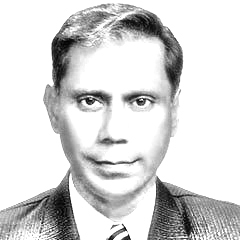Prime Minister (PM) Imran Khan made a genuine and sincere effort to reach out to India for dialogue in his letter to his Indian counterpart Narendra Modi, seeking to re-start bilateral talks on key issues “challenging the relationship.”
Prima facie, the overture was received positively and India responded by announcing that, to break the ice, the Foreign Ministers of Pakistan and India would meet on the sidelines of the United Nations General Assembly (UNGA) session at New York. The initiative was welcomed by various capitals of the world; including Washington DC. Nary had a day gone by when India backtracked. A false flag operation in which three Indian policemen were brutally slain in Indian Occupied Kashmir (IOK) and the release of postage stamps by Pakistan glorifying the Kashmiri freedom fighter Burhan Wani, who was killed on July 8 2016, was made an excuse to call off the talks.
If that were not enough, the Indian media, its extremist political leaders and Army Chief BipinRawat went ballistic, threatening Pakistan with dire consequences, stating that it was time for another surgical strike. Rawat’s jingoistic behaviour was totally uncalled for, especially considering that his own country and the country he was threatening are equipped with nuclear weapons. Any conflict between the two can only result in Mutually Assured Destruction.
The question arises, why is India evading dialogue with Pakistan? The answer is manifold. Firstly, India does not have a case on the core issue of Kashmir. Veteran Ambassador Yusuf Buch, former senior advisor to the United Nations Secretary General and a living encyclopaedia on Kashmir, in a meeting with Dr Ghulam Nabi Fai the Secretary General of the Washington-based World Kashmir Awareness Forum on September 19 2018 — elucidated the issue in New York. In response to a question regarding the legality of accession of Kashmir to India, Mr Buch expounded that the ostensible accession of Kashmir to India is a fiction entrenched in the Indian position. The fact that the act was performed by a feudal ruler who had fled his capital in the face of a popular revolt is well established in the official record of the dispute. If India were as certain of the legal strength of its claim as it professes to be, would it not agree to the whole question being examined by the World Court? A process lasting a few months would vindicate its position and bring it resounding victory. But India knows that an impartial investigation would be fatal to its claim. Hence the loud, indignant insistence on ‘sovereignty.’
Rawat’s jingoistic behaviour was totally uncalled for, especially considering that his own country and the country he was threatening are equipped with nuclear weapons. Any conflict between the two can only result in Mutually Assured Destruction
India has been harping on about how the UN Resolutions on Kashmir are outdated. This is hogwash because UN Resolutions can never be outdated unless both parties approach the world body in unison to withdraw it. In this case there are three parties, Kashmiris, India and Pakistan, It is a matter of record that as soon as the dispute arose, an overarching promise was made by India to Kashmir in all available forums — in solemn public declaration, in submissions to the United Nations, in communications to Pakistan and even to other governments. Reneging by India on the promise does not make it archaic or outdated.
Since 1989, after the Kashmiris decided to take up arms for their just struggle of liberation against Indian tyranny, thousands of innocent Kashmiris have been brutally murdered. Hundreds of mass graves are evidence of that but India is not willing to allow Human Rights groups to enter the Valley to investigate its brutality. As for the case of Burhan Wani, thousands of Kashmiri youth came out in the streets to protest the cruel slaughter of their leader. Unarmed protesters were fired upon by pellet guns, which killed over 200 but worse still, over 3,600 were permanently blinded.
India blames Pakistan for stoking the fires in IoK but the fact is that it is India which has sent agent provocateurs into Balochistan and Karachi to foment trouble. It has also employed the Tehreek-e-Taliban Pakistan (TTP) to launch terrorist attacks on Pakistani soil. Pakistan has ample evidence of Indian complicity including the smoking gun, Commander Kulbhoshan Jadhav, senior RAW operative, who was arrested from Balochistan and sang like a canary.
It also shouldn’t be forgotten that 2019 is an election year for India. The BJP has nothing to show for its tall claims of transforming India for the better. Narendra Modi has been put on the mat in the Rafale deal after President Hollande disclosed that Modi’s government had pressured Dassault to partner with India’s Reliance Defence to meet its “offset policy”. The Indian opposition is baying for Modi’s blood, seeking his resignation.
Under such heinous circumstances, Pakistan is a soft target for diverting attention from the Modi regime’s own failures. This is what is behind the frequently parroted slogan that “terror and talks do not go together”.
The writer is a retired Group Captain of PAF. He is a columnist, analyst and TV talk show host, who has authored six books on current affairs, including three on China
Published in Daily Times, September 28th 2018.
